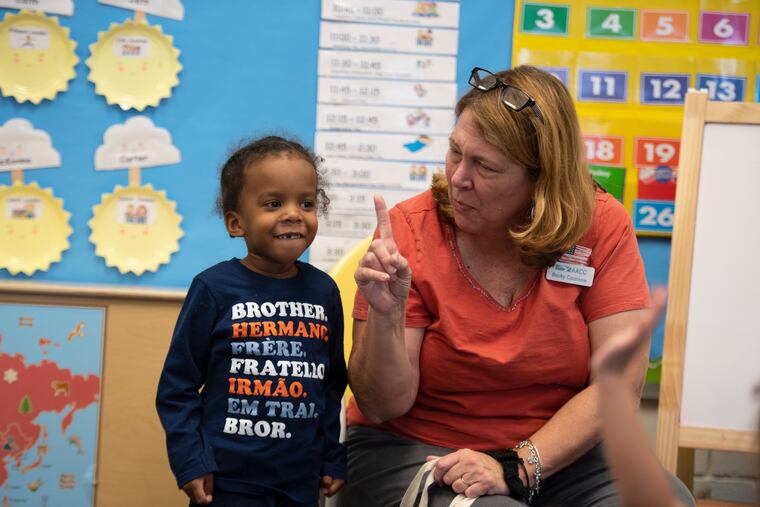I live in a constant battle between wanting to work and not being able to afford child care | Opinion
Philadelphia’s families are desperate for help with the cost of child care so that they, in turn, can help their own families with work and income.

There’s a group of sharp, motivated Philadelphians desperate to work — but they can’t. Many have jobs waiting or they have to painfully decline offers. It’s not that they don’t want to earn a living — it’s that they can’t afford to. If that doesn’t make any sense to you, it doesn’t to me either. And I’m living it.
Like too many parents, I’m trapped in an economy that doesn’t work for me and my family, no matter how hard I try.
The main culprit: the extraordinarily high cost of child care. Child care for just one child is around $11,000 a year. Putting two children in child care costs more than tuition at Penn State — about 20% more, in fact. And most families have more than one child.
Fortunately for some parents, there are public programs that help defray some of the costs of child care.
The main program is the state’s Child Care Works subsidy system. Families who have incomes at 200% of the poverty level — around $50,000 for a family of four — or lower can get child care for their children at a fraction of the full cost thanks to this program.
But because funding is far short of what is needed to support every working family, most families who are eligible for the subsidy often can’t get it. In fact, approximately 700 families in Philadelphia were on the waiting list for these subsidies as of the end of last year. I am actually one of the people on that waiting list. I just had my first baby, and I had to take time off work to care for my newborn. Returning to work means needing child care, but now I am at the bottom of that Philadelphia waiting list, so going back to work simply isn’t financially possible.
I was stunned to read in a new report from Public Citizens for Children and Youth that mine is among the 70% of families with children in Philadelphia who are likely to have little to no income left after covering just the basic expenses, including the enormous bill for child care. The report, “Underwater: What’s Sinking Families in Philadelphia,” finds that even families making $75,000 a year are barely covering the basics of living and raising children. Housing costs, for instance, are growing steadily, with median rent growing by 10% since 2012 in Philadelphia. Health-care costs, too, are growing rapidly, with premiums in Pennsylvania increasing by an average of 50% just since 2014. It’s hard enough to keep up with these costs on their own, and adding child-care costs to the mix — or the loss of income from being unable to work — makes for an economy that, simply put, does not work for families.
I live this constant battle to stay above water every day, and we can’t keep going like this. Our elected officials need to step up and change the way the city’s economy works for families.
Philadelphia’s families are desperate for help with the cost of child care so that they, in turn, can help their own families with work and income. But if nothing changes, I will remain trapped in my current state: ready, willing, but unable.
Jasmine Holliday is a Philadelphia mom.